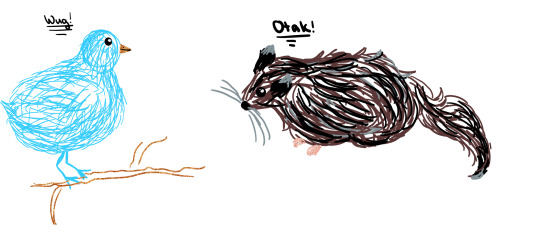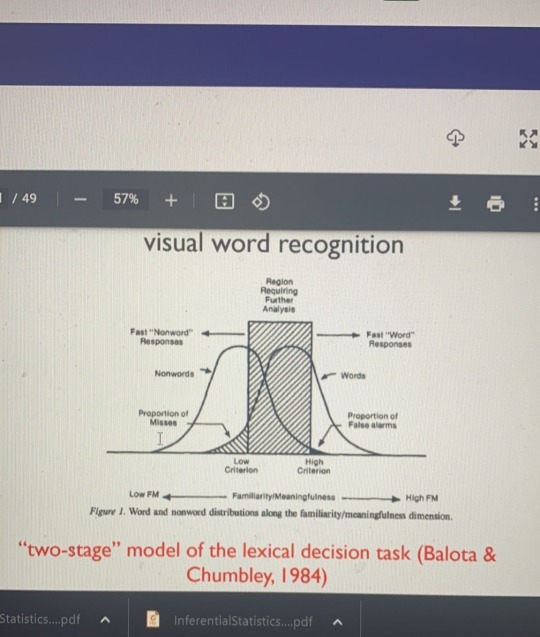#psycholinguistics
Text

It's my 14 year anniversary on Tumblr 🥳
#14 year tumblrversary#tumblr milestone#HOW#linguistics#language#language and identity#language and power#language and culture#langblr#phonology#phonetics#semiotics#semantics#historical linguistics#neurolinguistics#psycholinguistics#linguist#linguistic anthropology
7 notes
·
View notes
Text
*URGENT* pls join my experiment lol
I’m working on my senior research project and need participants for my linguistics experiment that starts tomorrow (18th of April)
Essentially all you would have to do is solve some anagrams (word scrambles) every day for a week. Everything’s online, so you can participate from literally anywhere in the world at any time of day.
If you’re interested and able please sign up, if not please reblog! This would be so helpful for me and literally allow me to graduate !

thank you!!!!! <3
#Linguistics#psycholinguistics#polls and research#Research#Mutual aid#Anagrams#Science#Wordle#Queer#Please join if you can this will literally help me graduate!!!!!#All you have to do is solve some puzzles ! It's literally just like a game!!#quiz
31 notes
·
View notes
Photo

Shout out to my lovely little novel objects with unusual names 💖🥺
Bonus!

#Psycholinguistics#Wug test#wug#Earthsea Cycle#Otak (Earthsea)#I tried to come up with a design for Otaks in 5 seconds during a meeting I was zoning out at#Shout out to my brain criss-crossing my interests in the silliest ways#smitha can draw
13 notes
·
View notes
Text
Hesitations and filler words—what linguists sometimes call disfluencies—actually serve an important purpose: they can help signal to the listener that the topic being talked about is a new piece of information that they should pay attention to.
19 notes
·
View notes
Text
Anne Cutler
Anne Cutler was born in 1945 in Melbourne, Australia. Over the course of a six decade scientific career, Cutler made a variety of significant contributions in the psychology of language and language development. Together with her colleagues, she developed what is widely regarded as the most extensive theoretical model of spoken word recognition. In 1993, Cutler became director of the Max Planck Institute for Psycholinguistics. In 1999, she won the NWO Spinoza Prize, the Netherlands' highest scientific honor. She used the prize money to establish a research center where language development and social-cognitive development of infants and children were studied.
Anne Cutler died in 2022 at the age of 77.
19 notes
·
View notes
Text
Teeheehee what if I decided the topic for my honors thesis through a tumblr poll hahaha jk!! .. unless..?
#I’m just too indecisive and I have multiple equally interesting ideas#linguistics#phonetics#sociolinguistics#second language acquisition#javasquatting#psycholinguistics
2 notes
·
View notes
Text
Psycholinguistics 1.0
making things awkward
In English, awkwardness is sometimes seen as the quality of a situation. “How was your date” “oh it was really awkward.”
In Russian on the other hand, awkwardness is a feeling. “Мне было неловко», a semantically accurate translation of the response above translates directly to “I felt uncomfortable/uneloquent”
As a fluent speaker of both these languages, I can testify that these phrases refer to the same emotional experience, but they position the speaker differently. I want to us this linguistic nuance as a means to explore awkwardness- although I’ll probably drop the linguistic angle pretty quick.
Awkwardness in English has a specific quality- (this might be generalizable to other adjectives as well, and I might explore more of this later) where it grants the subject the ability to generate or induce it.
how was your date?
ok…until I made it awkward
The only way to convey “I made it awkward” in Russian is to say “я поставил его в неловкое положение»- “I put him into an uncomfortable position”- which almost always implies there was a clear and specific action that was taken, and should be avoided in order not to make people feel awkward, but I should emphasise that this isn’t really the default expression the way “making things awkward”- an expression that is in itself a complete action that requires no further elaboration on “how?”- is in English.
This ties into awkwardness as a quality of social interactions. In Russian speaking cultures, it’s rare to have conversations that feel awkward because there is absolutely no precedent for small talk. If a conversation might be awkward and has no explicit goal or purpose, you aren’t going to have it.
This is not the case in American or UK social interactions. Small talk with unfamiliar people is anticipated- and that’s quite a High Awkwardness Risk situation. There is no inherent need to assign blame for awkwardness, but we tend to do so anyway- and since there’s not usually an actual culprit, we tend to place it on ourselves.
Now the question of what actually makes a situation awkward remains unanswered. I’d firstly like to posit that in unfamiliar unstructured interactions, awkwardness is the norm rather than the exception, and while not necessarily inherent to every situation, is something that is actively fought against rather than induced.
(Assuming the inverse linguistically, as in either of the aforementioned languages, explains some of the shame or self loathing that comes with awkwardness. If awkwardness is caused, an awkward situation means you have done a bad thing. On the other hand, if it is a natural force that must be combatted- an awkward situation means that you have not avoided it successfully- which is much easier to represent as a skill to work on, and much less prone to negative moralisation than the aforementioned alternative.)
If awkwardness is the natural inclination of unstructured interactions, there must be factors contributing and controlling for it. I want to explore this further in following posts
3 notes
·
View notes
Text
PsychoPy: I can't... I can't take any more rootines or loops...
Me: Come baby I know you can... Take one more... One more for Daddy
Me *forces one more loop*
PsychoPy: asfhjklutg *crashes*
3 notes
·
View notes
Text
Media psychology looks so interesting...
But is it practical
#College#Masters#I always have to think of practical#The more interesting it is the less practical it seems#Some psych more interesting than others#Psycholinguistics#Trauma psych#Trauma counselor w animal therapy emphasis?#All#Or#Graphic design#Vet tech#Childcare#I want to do sth w the mind!#That relates to writing!#Ideas!!!!!!!!!!#Big picture#Global affairs#International relations#Countries#Culture and history#Also be creative entrepreneur.#I dont want to just do 1 thing#1 focus perhaps#Which#Have farm.#Foster#Adopt#Travel#How now brown cow
2 notes
·
View notes
Text


050622 [ 5 of 14 ]
is it obvious I wanted to win in the duolingo league today ahahah
a veeeery busy day so I only had time in between this and that. Still very happy with what I got done study wise!!
Did some tutoring today!! :-) I'm happy that I still know what I'm talking about at least (linguistics-wise)
9 notes
·
View notes
Text
Help Wanted! Please consider participating in my research
This is a repost for the evening crowd :)
I'm currently working on a senior research project and need participants for my linguistics experiment that starts tomorrow (18th of April)
Essentially all you would have to do is solve some anagrams (word scrambles) every day for a week. Everything's online so you can participate from literally anywhere in the world at any time of day.
If you are interested and able please sign up! This would be so helpful for me and literally allow me to graduate!

Thank you!!!!! <3
#Linguistics#psycholinguistics#polls and research#Research#Mutual aid#Anagrams#Language#Science#Wordle#Queer#Please join if you can and help a goth in stem out!!!#It's just solving puzzles!#Quiz#please reblog#signal boost
13 notes
·
View notes
Text
Speakers of different languages remember visual scenes differently | Science Advances
PDF
Anyone ever read or studied Wallace Chafe’s PEAR STORIES?
7 notes
·
View notes
Video
I have become obsessed with these little guys
10 notes
·
View notes
Text
The wording of this is gonna sound funky but I hate people who hate people that use the word “like” in their sentences. It’s called utterances, you bitch. AKA a useful function within human language to manage communication, just like “um,” “uh,” and pauses, and the like. Utterances help us manage communication by letting ourselves take a break and quickly reassess, and think, while also letting our audience know we’re not finished talking. “Like” is just a newer utterance and while you people say it’s technically incorrect to use the word “like” that way, you are also technically incorrect in assuming the human language is so strict like that. Take a psycholinguistics course.
1 note
·
View note
